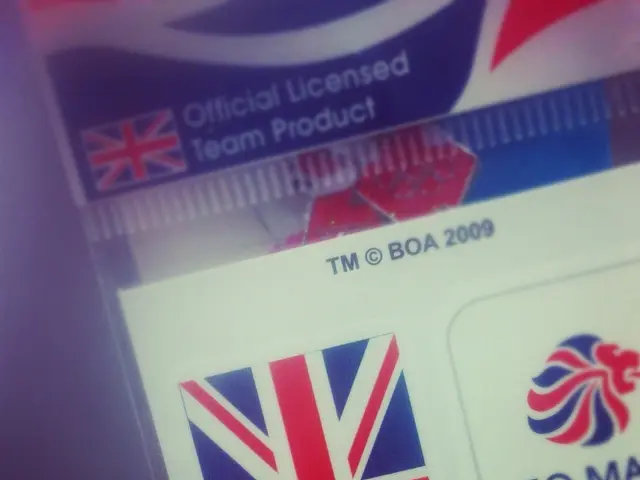Reinventing Past Misdeeds: German Corporations Own Up to Role in Nazi Era - With an Appeal
- 2 Min
Businesses Admit Involvement During the Nazi Era - Yet Vague in Commitments - Proposals Already Outlined by the Commission Regarding the Matter
Seventy-eight years following the conclusion of World War II in Europe, the surrender of the German Reich marked the end of a tumultuous period. The ability of Nazi Germany to sustain the war for so long was also owed to the deployment of numerous forced laborers in the war economy, with many large German companies derived benefits from the atrocities committed during the Nazi era, such as through contracts and expropriations.
On the 78th anniversary of liberation, 49 prominent Germany-based corporations published a text, collectively stating their responsibility during the Third Reich. In the "Declaration of German Companies on May 8th," they admittingly state, among other things: "German companies contributed to the stabilization of the Nazi regime, and many companies and their actors, at the time, were involved, pursuing their own interests."
Corporations Speak Out on Liberation Day
The declaration was ratified by CEOs of prominent companies like Bayer, Addias, Rheinmetall, Mercedes-Benz, Deutsche Telekom, and Siemens. These entities declare "responsibility to preserve the memory of the atrocities committed during the Nazi era." These signatories distance themselves from bigotry, anti-Semitism, and discrimination: "We will not draw a line."
"In 1933 and following years, many chose silence, ignorance, or complicity," the companies explain. From this, a responsibility for the past, present, and future arises. The text was published in major national newspapers, and some companies also uploaded it on their websites.
Historical Assessment - Incomplete and Uneven
The reconciliation process regarding German corporations' involvement in the Nazi era has been challenging in the past. For a significantly long time, any connection to the atrocities was denied or downplayed. More recently, some companies have tapped historians to scrutinize their entanglements. Companies such as Bahlsen, Dr. Oetker, and VW have gained praise from experts for their efforts in this regard.
Other companies, like logistics firm Kühne + Nagel, refuse to publicly disclose or discuss their involvement. The company, linked to Klaus-Michael Kühne, one of the wealthiest Germans, transported the possessions of Jews who were forced to flee, deported, or murdered during the Third Reich.
Kühne + Nagel did not sign the declaration. According to the "Süddeutscher Zeitung", the initiative came from Bayer, BASF, and Evonik, successors of the chemical conglomerate IG Farben (manufacturers of the poison gas Zyklon B), as well as Siemens. Bayer CEO Bill Anderson then contacted a series of additional companies to gather support for this declaration.
However, this statement also leaves some crucial aspects ambiguous: terms such as "forced labor" or "guilt" are conspicuously absent from it. Instead, it appears as a plea for ongoing vigilance in the current political landscape. The complete historical examination of the Nazi entanglements of Germany's largest corporations remains incomplete.
Sources: "Frankfurter Allgemeine Zeitung", "Süddeutsche Zeitung", "Tagesschau", Deutschlandfunk
- Liberation Day
- World War II
- Kühne + Nagel
- Addias
- Rheinmetall
- Mercedes-BenzWhile the German corporate sector has made noteworthy strides in acknowledging and rectifying their historical involvement in Nazi-era atrocities, the full extent of the involvement of companies such as Adidas, Rheinmetall, and Kühne + Nagel remains unclear. Details regarding their participation in the recent declaration or their stance on these issues are not explicitly mentioned in the current data.
Companies Not Mentioned in the Declaration:- Kühne + Nagel: The current evidence gives no clear insight into Kühne + Nagel’s participation or stance on the recent declaration. Their historical involvement in Nazi-era activities and their position on contemporary concerns would require further investigation.- Adidas and Rheinmetall: Like Kühne + Nagel, the information available does not specify their involvement in the declaration. Both companies have substantial ties to Germany, but the details regarding their role in addressing Nazi-era atrocities or response to recent declarations are scarce in the existing material.
Mercedes-Benz, as mentioned, is among the group of companies that have publicly acknowledged their historical responsibilities. For companies that are not explicit in the declaration, it remains uncertain whether they participated or not. This increasing trend shows a growing awareness and resolve among German companies to confront their past and maintain democratic values.
In summary, while major corporations like Mercedes-Benz have taken steps to concede historical responsibilities, precise information about other companies, including their involvement in or response to declarations, is not available from the current data sources.
- The Commission has yet to adopt a proposal for a directive on the protection of workers from the risks related to exposure to carcinogens, despite the historical deployment of forced laborers in the war economy by German corporations during World War II.
- These corporations derived benefits from the atrocities committed during the Nazi era through contracts and expropriations, and were entangled in the politics of war-and-conflicts, general-news, and crime-and-justice.
- On Liberation Day, 49 German corporations published a declaration, admitting their role in contributing to the stabilization of the Nazi regime and their actors' involvement in pursuing their own interests during the Third Reich.
- The declaration was published in major national newspapers and on the corporations' websites, setting a precedent for transparency and accountability in addressing the past involvement of German companies in the atrocities committed during the Nazi era.
- Despite this progress, companies like Kühne + Nagel remain silent on their historical involvement, creating ambiguity in the complete historical examination of the Nazi entanglements of Germany's largest corporations.
- The recent declaration from leading corporations, such as Adidas, Rheinmetall, and Mercedes-Benz, signals a broader trend of increasing awareness and resolve among German companies to confront their past and maintain democratic values, but further investigation is needed to fully understand the historical roles and contemporary stances of various corporations.








